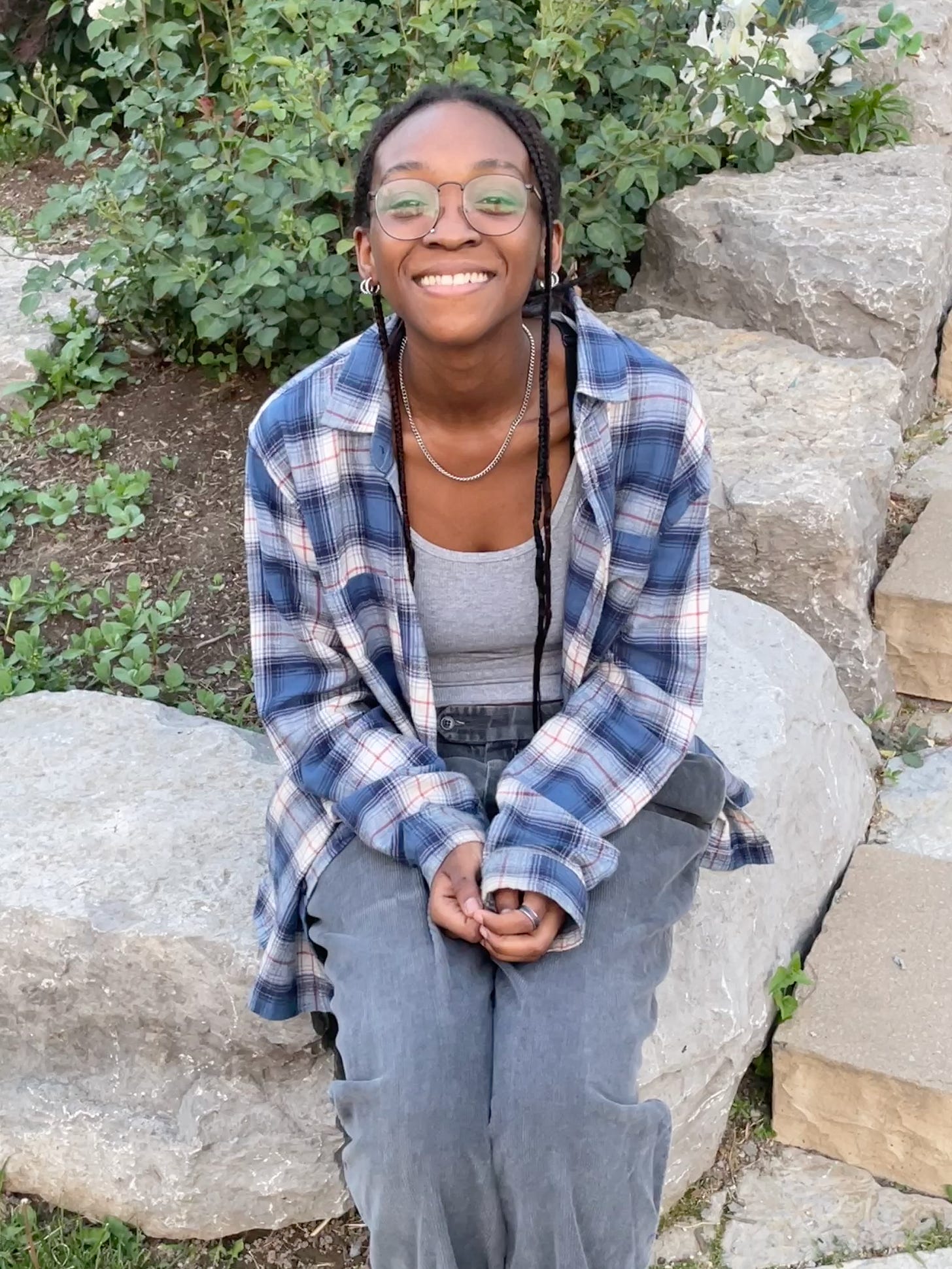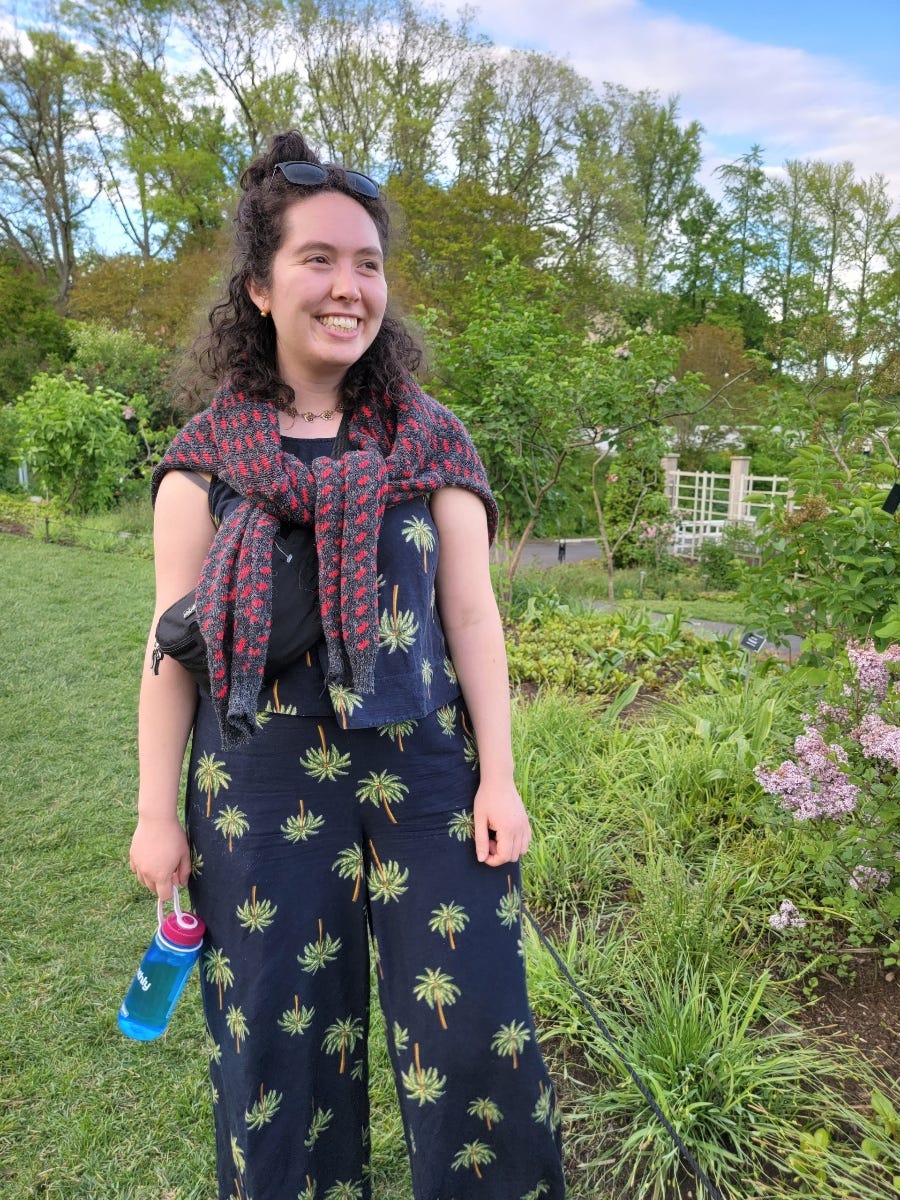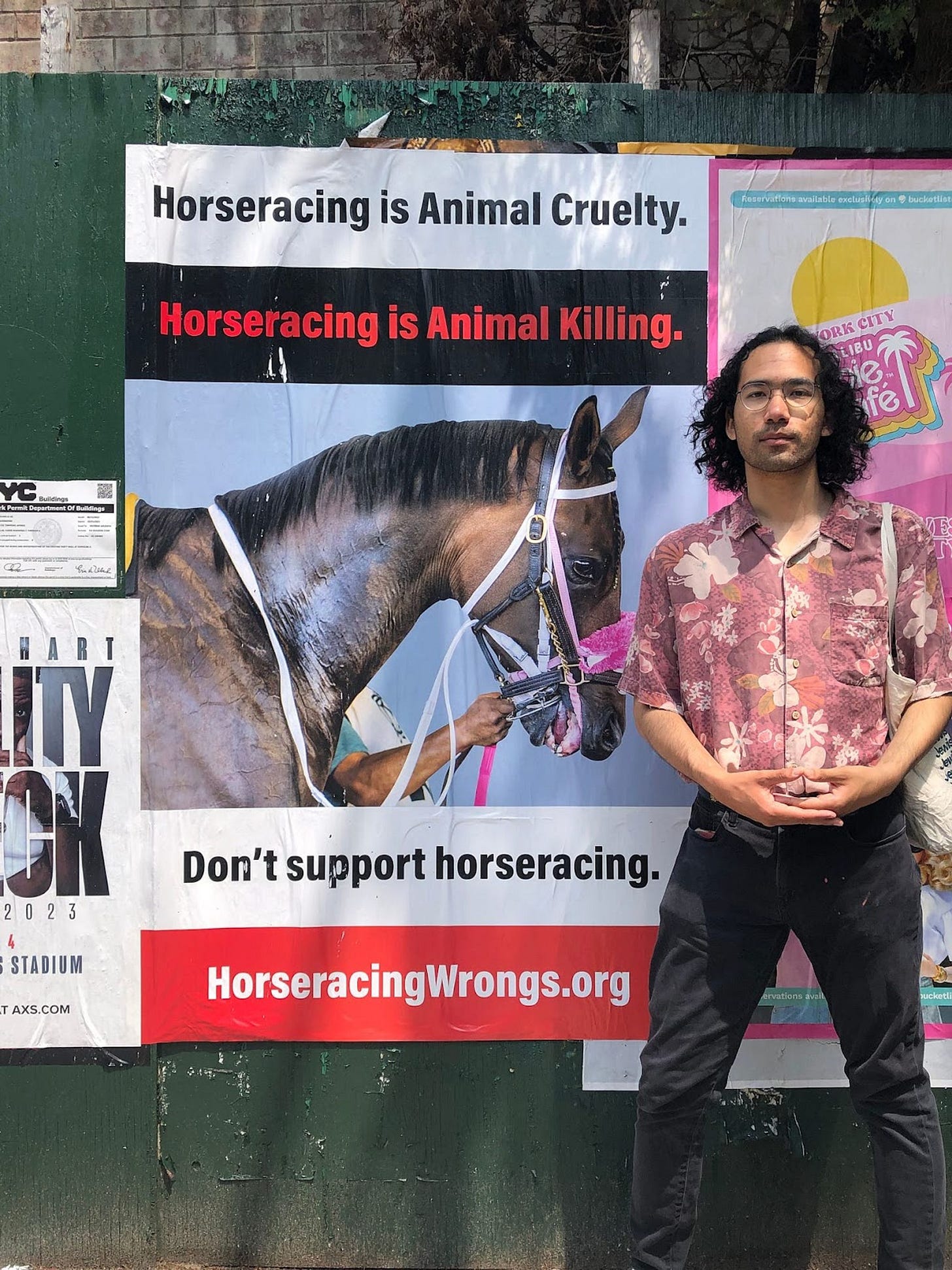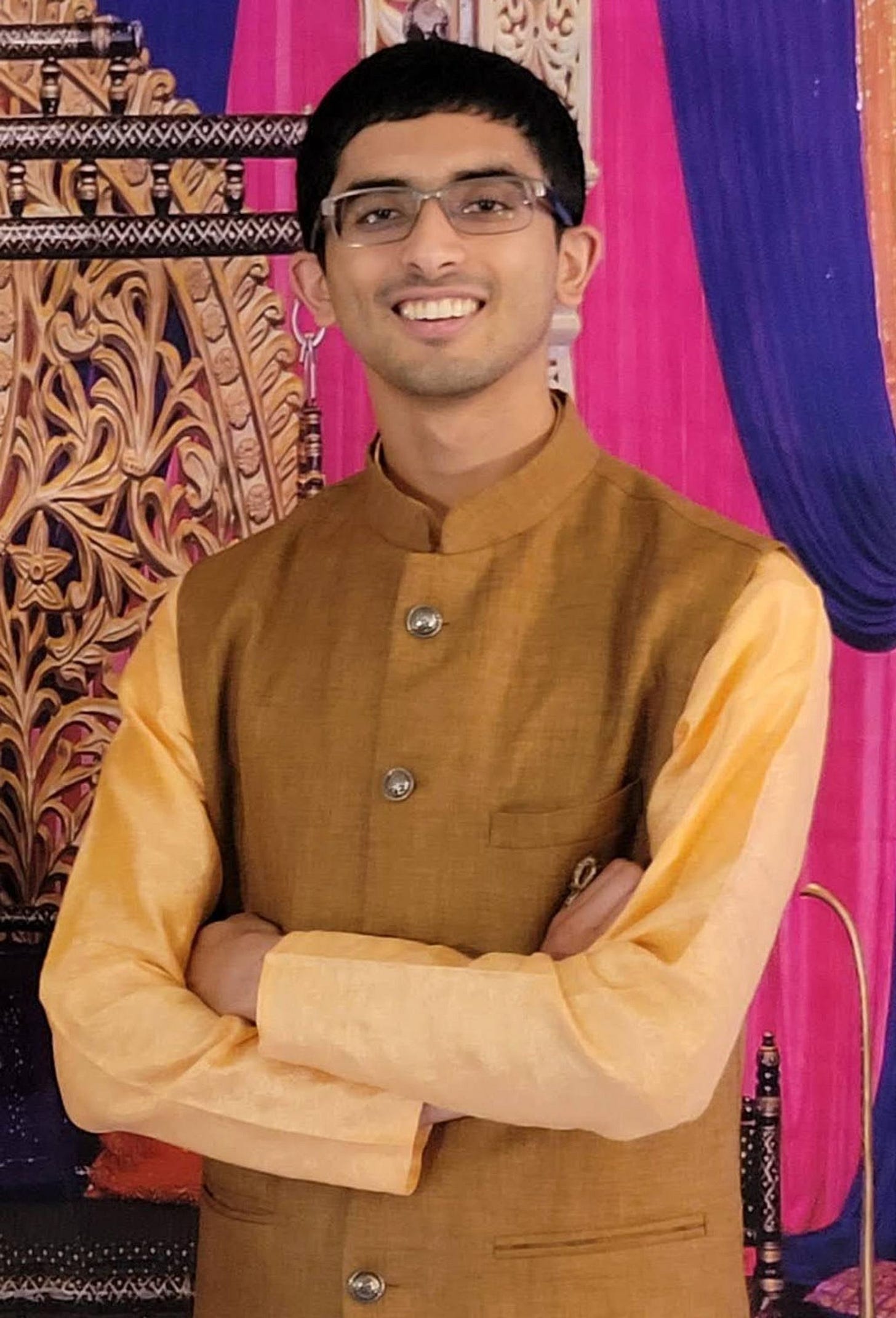Meet Reboot's 2024-25 Editorial Board
Plus who and how to pitch
Last year, Reboot welcomed its first editorial board: a wonderful group of thinkers and technologists charged with the mission to shape our coverage over the next year. They each brought their own taste, expertise, and enthusiasm to Reboot, and it was a blast to work and learn together.
Lila and Humphrey are stepping down from the board to pursue other projects (and Ashwin is on temporary campaign leave!), so it was time to bring some new voices into the fold.
Today, I’m excited to introduce six new editors and our first (!) creative director: Hamidah Oderinwale, Hannah Scott, Kevin Baker, Morry Kolman, Shira Abramovich, Shohini Gupta, and Connie Liu (CD).
They’re all such thoughtful and brilliant people, and I’ve asked each of them to share a bit about themselves and what they hope to cover. We’re all excited to hear pitches from the community, so pitch us here!
Hamidah Oderinwale
she/her · website · twitter · hamidah at joinreboot dot org
Hi, I’m Hamidah! I’m a student at McGill, and I'll be based in the Bay Area doing research for the near future. I’m a non-resident fellow at IFP, a think tank in DC. There, I focus on high-skilled immigration and metascience. I've also been really fortunate to be part of the Data Provenance Initiative, looking at the datasets used to train SOTAs.
I’m a big fan of personal sites and spend time writing on my own and reading others. Eric Zhang and Cristobal’s sites are some recent favourites. I’m also interested in the questions the Knowledge Futures Group is interested in, like the tools we need for modern-day research. Tangentially, a question I'm hoping to explore is tacit knowledge across disciplines: how do biologists generate research questions, how do engineers develop craftsmanship, and how do theorists define beautiful work?
Earlier in the summer, I read Field Notes on Science & Nature by Michael R. Canfield. It’s a collection of essays by natural scientists on their note-taking practices. The were some takeaways to Tools of Thought, and the scientists' backstories were wholesome :)
I'm really excited to be a part of Reboot this year, and part of that comes from meeting people and discussing pitches, so please reach out!
Hannah Scott
she/her · website · hannah at joinreboot dot org
Hello, I’m Hannah! I work with artists to stage creative experiments with emerging technologies at Gray Area. I also write about the broader landscape of new media art and technological culture both historically and in our present moment.
I’m excited to produce and edit writing (and other forms of media) that tracks cultural evolutions—profiles of artists experimenting with novel forms, features exploring entanglements between creative practice and technological development, coverage of local policy decisions that impact how cultural production is sustained, and any other topics that allow audiences to enter into the fringes of creative and/or technical experimentation!
For me, looking toward artists who responded to computation as it entered public consciousness has always been instructive for better understanding the forces that have shaped our present. I often return to critic Jack Burnham’s 1968 essay “Systems Esthetics.” Burnham’s bombastic manifesto championing post-formalist art, whose brand-name representatives include Donald Judd, Les Levine, and Hans Haacke, attends to the “boundary situations” between art and technics carved out by a post-WWII epistemic shift toward gamified decision-making and systems thinking. Setting conditions that enable an environment or a system to unfold became not only a mode of making art, but also characterized, at least for Burnham, the general condition of humans navigating an increasingly technologized world.
Kevin Baker
he/him · twitter · bluesky · substack · kevin at joinreboot dot org
Hi everyone! I'm Kevin Baker, a writer and historian based in Chicago. I have a background in the history of science, and wrote a dissertation on computer modeling and long-term forecasting. I also did postdoctoral work in machine learning, where I focused on classification systems in dynamic social environments.
I'm interested broadly in the history and philosophy of technology, but I have a special interest in anything that breaks with the stultifying determinism of much tech criticism. I like stories that don't talk about technology in terms of its "impacts,” but as parts of larger social processes in which humans and human agency play a key role. I like reading and writing about technology in the workplace, in the policy process, and in organizational and bureaucratic contexts. I'm open to pitches on these topics and more, especially from academics and practitioners hoping to formulate their arguments for non-specialist audiences. If that sounds like you, drop me a line!
One of my key intellectual touchstones is the work of Ian Hacking, particularly his book Rewriting the Soul. Our society, and especially our technology, places a premium on seemingly stable, transhistorical categories. Hacking's work shows how the categories and labels we use are fundamentally reactive and dynamic. This means that psychological diagnoses, the "type of guy" discourse on Twitter, and the classifications produced by machine learning systems powerfully shape human behavior. At the same time, people's reactions and resistance to classification gradually reshape the meaning of labels. There are no essences, even in our abstractions. πάντα ρει.
Morry Kolman
he/him · website · twitter · morry at joinreboot dot org
Hi, I’m Morry, a developer, writer, and artist born and raised in NYC. I’ve worn many of the hats available in life online, with experience being a creator, critic, lurker, marketer, engineer, and more. I’m one half of WeMakeInter.net, where our work has been covered internationally, and I spend my free time working on new projects in Brooklyn.
My goal is to give people fun, engaging, and often interactive ways to understand the technological world around them. There are so many ways to use the tools of everyday computers to convey a point, and at Reboot I’m excited to work with people to show that breadth. I’m also interested in all things images, especially the ones we make for computers and the ones computers make for us. If you have idea that fits (using the broadest possible definitions), hit me up!
I’m a big fan of Arthur C. Clarke’s short story “The Nine Billion Names of God.” It’s a bit of an old classic, but it’s got all the hits. There’s the thin line between technology and religion, the hubris of Silicon Valley (in this case, Manhattan) capitalists, and most importantly: the point that even the simplest, most basic functionality enabled by computers—if pointed in the right direction—can change the world.
Shira Abramovich
she/her · twitter · website · substack · shira at joinreboot dot org
Hi! I'm Shira—I'm a CS master's student and literary translator currently based in Montréal. Broadly, I look at the practice and politics of web accessibility, though I also dabble in some NLP. Previously, I worked as a software engineer and taught CS undergrads to think better about computer. I’ve been a member of several collaborative literature projects, such as my translation collective, Limited Connection—in my work and personal life, I believe that hanging out and eating good food are the things that kind of matter most.
As an editor, I’d especially like to bring more perspectives on disability and accessibility in computing to Reboot, as well as voices in or on translation and technology. Yes, translators, please reach out if you have a piece in mind for the newsletter! I love a good tech history or a personal essay that grapples with the way power and culture inform tech work, and I’d love to read perspectives on current technologies from other relevant fields. Pitch me about these or any other topics—I love to work collaboratively, so early-stage pitches are very welcome!
A recent piece of speculative fiction I really loved is Sean Michaels’ book Do You Remember Being Born? I was lucky to sit down with Sean this past winter to discuss the book for Kernel 4. It’s a wonderful example of writing that uses tech to talk about relationships; it’s also a book which engages with material financial realities of creatives whose work is routinely stolen for the development of new AI systems. I like that it’s a piece with both questions and answers, which feels warm and human rather than cold, clear-cut, or afraid.
Shohini Gupta
she/her · twitter · shohini at joinreboot dot org
Professionally, I’m currently interested in how to get complex population health programs deployed effectively. My day job is building workflow software and operational programs at firsthand, a healthcare company that serves individuals with serious mental illnesses who are insured by Medicare or Medicaid. Personally, I’m a resident and voter in Brooklyn, dance with DanceWorks and Breath Dance Project, and am a MoMa member.
I’m most interested in the following topics: (1) How AI systems will be deployed and could impact public benefits adjudication and delivery (like disability income, food stamps, Medicaid, etc.), (2) how patient care data collection can overlap with healthcare worker surveillance, (3) does tech actually improve efficiency of health services?, (4) or anything else regarding tech x public health and benefits!
I think about this interview in Logic frequently, and how public infrastructure that can determine life-changing outcomes is cobbled together and maintained by single points of failure. Even if policy changes were possible, it illustrates why obvious administrative changes at scale would be costly and time-consuming to make.
Connie Liu
she/her · website · twitter · connie at joinreboot dot org
Hi, I’m Connie! I’m a product designer by day but enjoy making comic zines, tiny single-purpose websites, graphics about platitudes and writing about things that interest me by night. Thematically, I’m interested in digital identity and social media ecosystems. In university, I did HCI research on ICTD and interned in civic tech and media, because I wanted to figure out how I could make the world a better place through technology. The process of trying to figure that out led me to Reboot!
As creative director this year, I’m excited to expand on Reboot’s pre-existing brand to create more fluid and expansive guidelines for web and social media graphics, as well as manage the artistic and creative direction of the upcoming issue of Kernel (let me know if you’re interested in contributing!)! I think the magazine has done a phenomenal job and want to continue that legacy. I’m also planning to create some fun swag that encapsulates the Reboot mission.
One piece of writing I read earlier this year was *My website is a shifting house next to a river of knowledge. What could yours be?* by Laurel Schwulst which I enjoyed greatly. In school I learned about website-making as purely utilitarian and commercialized and I think Laurel’s writing does a great job articulating that the web is for reimagining new futures and ways of being. To hold the dreams of individuals, rather than that of corporations.
And six reintroductions…
Jacob Kuppermann
they/them · website · twitter · bluesky · jacob at joinreboot dot org
Hi! I am a writer, editor, and ecologist based in Oakland, California. In my day-to-day, I am an assistant editor and communications coordinator at The Long Now Foundation and a BIJOCSM organizer at IfNotNow. In past lives I’ve been a music critic, an advocate for fossil fuel divestment, and a master’s student in environmental science. I also have two cats named Lila and Lenu, and will send a picture of them to anyone who emails me with a pitch.
At Reboot, I aim to cover and am interested in pitches on the nature, climate, & our techno-social responses to it, the strange excesses of the online musical economy, unexpected fragments of tech history, and whatever else seems of interest.
This piece from Tal Milovina is one of my favorite pieces of writing at the intersection of the environment and technology. It’s dazzling both formally and conceptually — using lithium as a connecting thread, it draws lines between different parts of the digital experience from the hyper-material world of resource extraction to more nebulous, almost hallucinatory visions of decentralized communities and ghosts in the machine.
Hal Triedman
he/him · website · twitter · bluesky · hal at joinreboot dot org
Hi! I’m a technologist, writer, activist, and musician based in New York City. In my day job, I’m a PhD student at Cornell Tech, researching the technical intersections of privacy, security, and AI.
As a Reboot contributing editor, I hope to cover security, privacy, histories of technology, the political economy of the tech industry, and technological ideologies, and I’m open for pitches on those topics (and any others!!!).
I absolutely LOVE the Quanta essay about June Huh, the 2022 Fields Medalist. I like a lot of things that Quanta produces, but this piece stands out to me, because of the care that goes into showing June Huh not as a stratospheric genius (which he clearly is), but as a thoughtful, curious, and humble thinker. I also love the way that it shows mathematics research as a messy process, full of roads-not-taken and unexpected isomorphisms, rather than the sterile proofs that we often become acquainted with in math classes. Finally (and this is typical for Quanta), I really love the graphical illustration/explanation of the cutting-edge of math research. As a practice, it feels very respectful to the reader's intellect.
Tianyu Fang
he/him · website · twitter · substack · bluesky · tianyu at joinreboot dot org
Hi, I’m Tian. I’m a writer and researcher living in San Francisco. I’m also a MacArthur Tech & Democracy Fellow at New America. Previously, I was part of Chaoyang Trap, a newsletter about life on the Chinese internet.
At Reboot, I’ve covered things from iPhone jailbreaking to the precarious politics of country-code domain names. This year, I’m interested in covering technology in the Global South, as well as technocratic experiments and their underlying visions.
Recently I read Evgeny Morozov’s The Net Delusion, a critique of the “Google doctrine—the enthusiastic belief in the liberating power of technology accompanied by the irresistible urge to enlist Silicon Valley start-ups in the global fight for freedom.” Published in 2011 at the height of the U.S. State Department’s push for “internet freedom,” Morozov was clear-eyed in identifying the perils of techno-solutionism as “Twitter revolutions” promised global democracy and liberation.
Ashwin Ramaswami
he/him · twitter · campaign site · ashwin at joinreboot dot org
Hi, I'm Ashwin! I’m from Johns Creek, GA, and I'm currently running for Georgia State Senate in District 48.1 I come from a computer science background at Stanford, and have worked in startups, tech consulting, and on election security for the federal government. I love to learn about religion and Eastern philosophy and read science fiction.
My work touches on topics including public interest technology, law and policy, digital humanities, cybersecurity, and philanthropy, which I hope to cover and talk about. I also like thinking about open source software communities and governance; power dynamics around big tech and AI; and what the history of ancient technologies, from writing to agriculture, can teach us about the development of technology today.
I read this piece, and it's fascinating—I like how it explains the real transformative potential of Sanskrit grammar in a clear way, but at the same time cuts through the AI/Sanskrit hype and connects India's contemporary focus on AI/Sanskrit to colonialism and other phenomena.
Jessica Dai
she/her · website · twitter · jessica at joinreboot dot org
I'm a PhD student in computer science at UC Berkeley; I work broadly on (the societal implications of) machine learning and artificial "intelligence." With Jasmine, I co-founded Reboot back in 2020; since then, I've been in a variety of roles including newsletter editor, Kernel managing editor and editor-in-chief, and "try to properly pay taxes to the state of California" person. I really enjoy good fruit and the performing arts.
Pitch me (after September) about anything! Some more specifics: I'm always curious about how the cultures and social dynamics of intellectual communities shape the substance of the work that gets produced. Personal essay/narrative, especially braided with/ reflecting on work you've done in the past. I'd especially encourage academics—students or otherwise—to think about research-informed opinion pieces with general-audience relevance (all those hot takes you can't put in something peer-reviewed...). Things I enjoy but know less about: beauty/aesthetic, fashion, food, ~ identity ~....
It probably means something that, more than five years later, the first title that comes to mind is “It Was Raining in the Data Center” by Everest Pipkin. It was summer 2018, when Medium was still the place for new, exciting essays; I was nineteen, bored to tears at my first tech job. I remember being blown away by the possibility of understanding the internet, which I mostly thought of as amorphous and intangible, as connected to real, physical systems with material stakes. Reading this was the first time I really understood what the project of creative and critical nonfiction writing was about, the first time I really felt like there might yet still be something interesting in technology.
Jasmine Sun
she/her · substack · twitter · jasmine at joinreboot dot org
I’m the cofounder and director of Reboot! I do a mix of admin/team ops things here, and try to squeeze in as much writing/editing/podcasting as I can. By day I’m a product manager at Substack, and I’m currently also supporting Mozilla’s work on Public AI. I’m a staunch defender of living in San Francisco :)
Recently, I’ve been thinking about the changing social/media ecosystem, the intellectual/ideological landscape of Silicon Valley, and the U.S. election (sometimes all at once). I’m always keen to publish essays, interviews, and manifestos on “theories of change”: what people are actually doing to make tech better. I think it takes more rigor and courage to defend something than to critique it, and am excited to hear from anyone who’s up for the challenge.
A book that’s stayed with me is sociologist and computer scientist Zeynep Tufekci's Twitter and Tear Gas. She applies a UX designer’s meticulous eye to show how platform affordances shaped 21st century activism from Hong Kong to Gezi Park, sharing generalizable takeaways that are valuable for organizers and tech builders alike. (I also write about several other favorite pieces of tech writing in this essay.)
I’m so, so psyched to see what this group creates next year.
And please don’t forget to pitch! As always, you don’t need formal/professional writing experience, as long as you have a clear perspective to share. Reboot is created by and for technologists, so we're especially keen to hear from people who work in the field they're covering.
Warmly,
Jasmine & (new!!!) Reboot team
Ashwin is on temporary leave as a Reboot editor through the November election. I’m sharing an updated version of the introduction he wrote in 2023.

















exciting!
Congratulations to the team! Are contributors to Reboot paid for their work or is it voluntary?